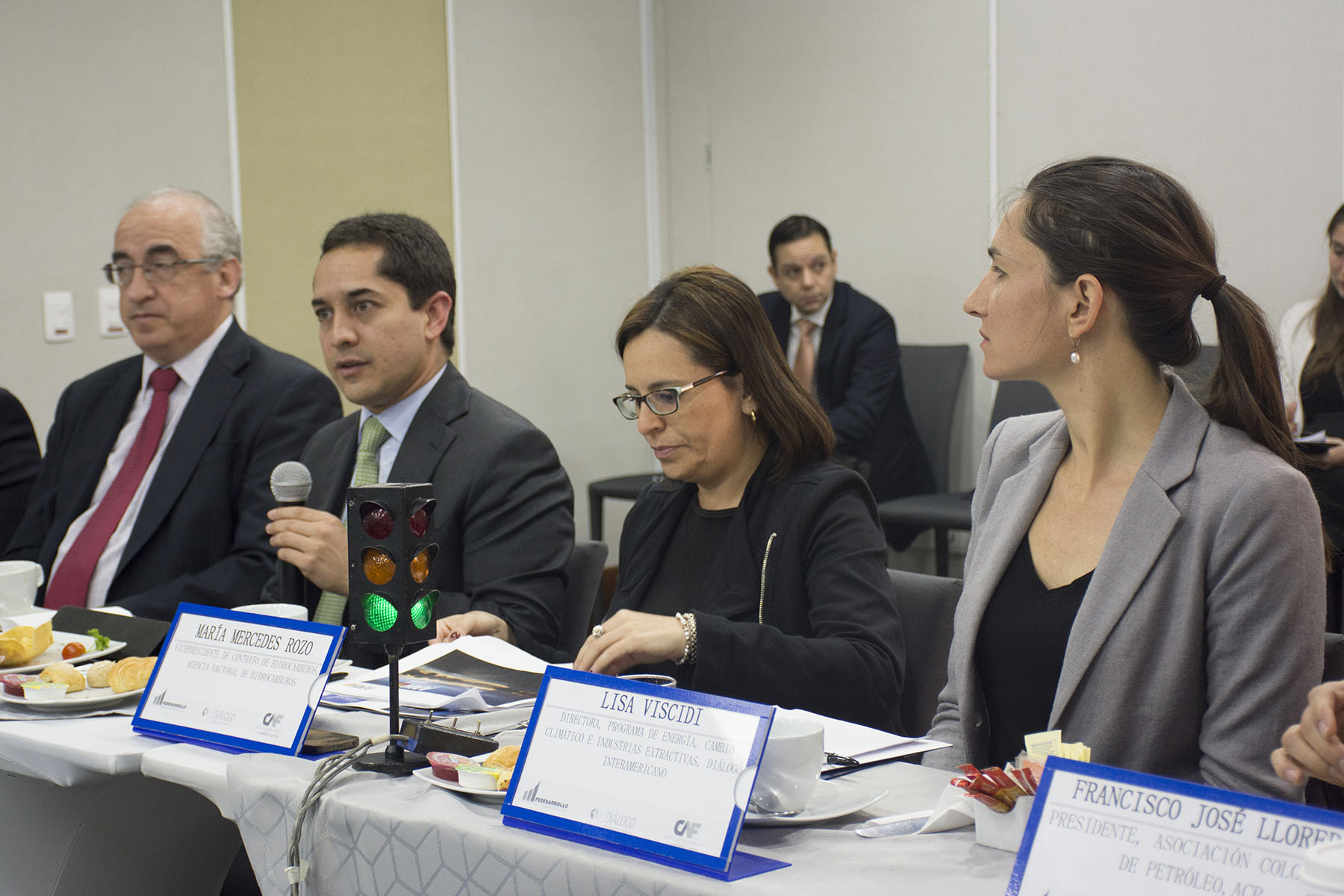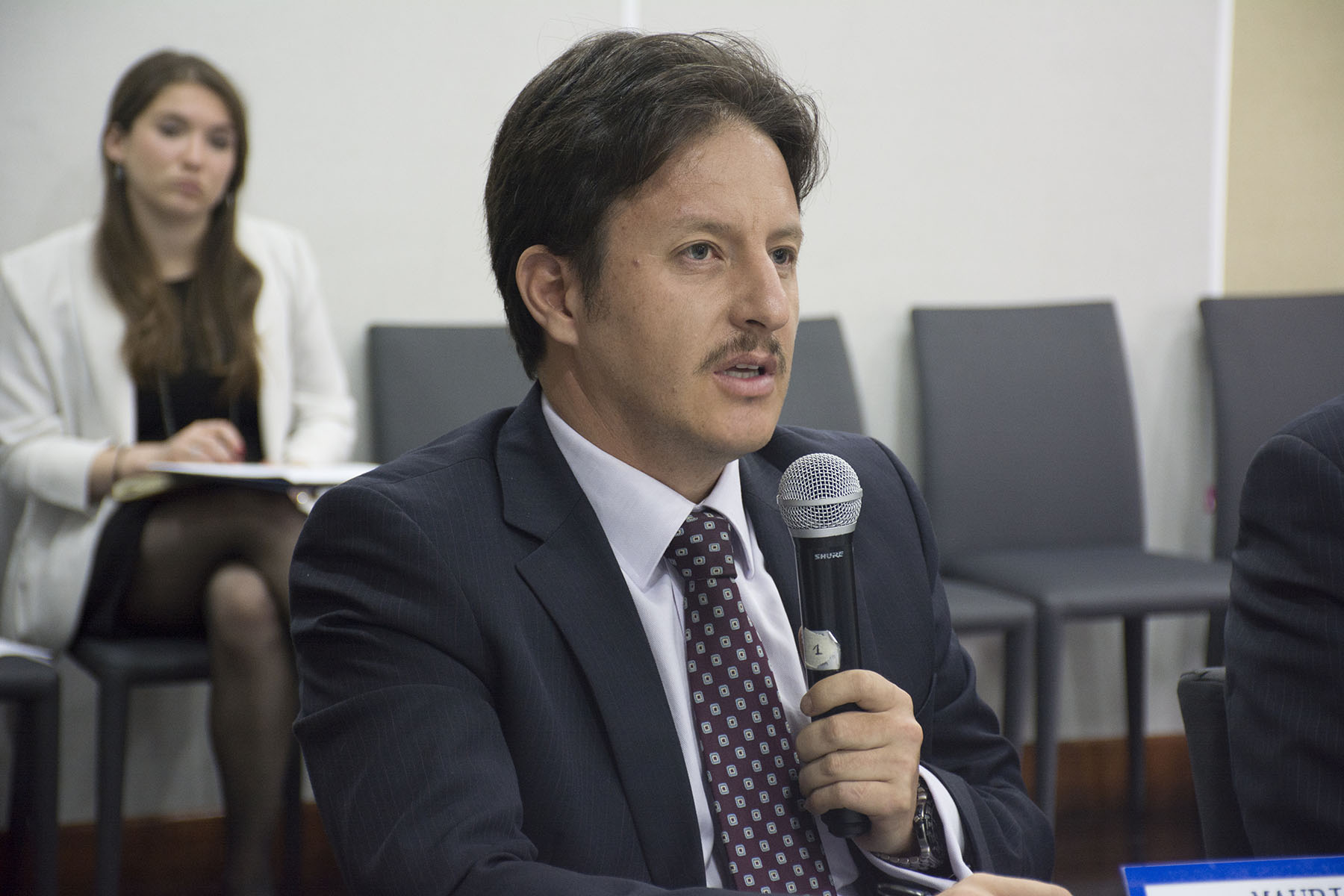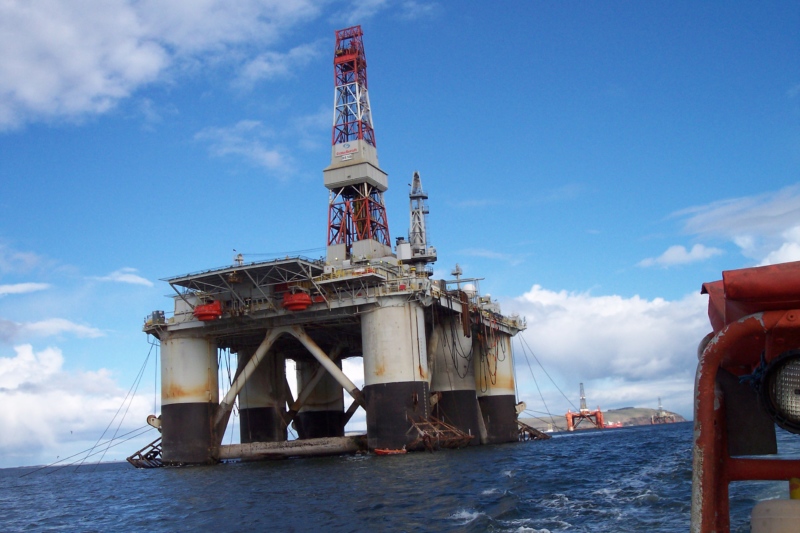Colombia-Venezuela Relations: What Are the Prospects?
Colombia and Venezuela have a history of rocky relations characterized by short bursts of improvement and deterioration.
The collapse in global oil prices has led to a steep decline in investment in Colombia’s hydrocarbons sector and reduced the value of its oil exports, depleting a key source of government revenue. Globally, oil companies are cutting capital expenditure budgets, making it more difficult for Colombia to compete for investment. The government needs to continue licensing new areas for exploration in order to maintain the country’s reserve life of just six years or Colombia risks returning to its former status as a net oil importer. On May 11th, the Inter-American Dialogue, Fedesarrollo, and CAF – Development Bank of Latin America hosted a private roundtable in Bogotá to analyze these challenges and propose policy solutions.
 The oil and gas sector’s contribution to Colombia’s GDP and foreign direct investment has fallen over the last two years since the oil price collapse. Drilling activity has slowed and the number of exploratory wells has dropped sharply – after peaking at 56 in April 2014 the number of wells drilled totaled just 5 in April 2016, noted Carlos Fernando Eraso, Colombia’s Viceminister of Mines and Energy. Industry representatives also pointed out that exploration success has been lower than historical rates.
The oil and gas sector’s contribution to Colombia’s GDP and foreign direct investment has fallen over the last two years since the oil price collapse. Drilling activity has slowed and the number of exploratory wells has dropped sharply – after peaking at 56 in April 2014 the number of wells drilled totaled just 5 in April 2016, noted Carlos Fernando Eraso, Colombia’s Viceminister of Mines and Energy. Industry representatives also pointed out that exploration success has been lower than historical rates.
To reverse this trend, the government has taken steps to improve Colombia’s competitiveness and encourage the development of offshore resources in particular. The National Hydrocarbons Agency (ANH), Colombia’s oil regulator, has created specific regulations for offshore hydrocarbons development. In offshore free trade zones, it has reduced oil revenue taxes from 25% to 15% and eliminated the value added tax. The ANH is also taking steps to modify the process through which new blocks are assigned in order to further incentivize exploration and production, said María Mercedes Rozo, a vice president at the ANH. While the loss of government revenue from the sector has had an important impact on the country’s budget, both government officials agreed that maintaining drilling activity in order to sustain production and replace reserves was more of a priority than maintaining total investment in dollar terms.

However, the drop in oil prices is just one of several challenges for the oil and gas industry in Colombia. Investment has also declined because of the lengthy process for gaining local community approval for drilling. The prior consultation process is expected to become even longer when the peace agreement between the Colombian government and the FARC is concluded, as several additional steps will be introduced. Investors are also concerned about legal uncertainty, as several drilling licenses have recently been revoked due to environmental concerns or community opposition, and about the cost of crude transport through pipelines, which has remained high despite the drop in oil prices.
 Though global oil prices recovered relatively quickly after the 2008-2009 price drop, Felipe Bayón, Executive Vice President at Ecopetrol, predicted that in today's environment, international oil prices will not return to their previous highs for quite some time. Yet the low price is an opportunity for the industry to readjust and increase efficiency, he said, and the future of hydrocarbons production in the country is likely to include an emphasis on offshore resources, heavier crudes, more advanced technologies, and increased reliance on enhanced oil recovery.
Though global oil prices recovered relatively quickly after the 2008-2009 price drop, Felipe Bayón, Executive Vice President at Ecopetrol, predicted that in today's environment, international oil prices will not return to their previous highs for quite some time. Yet the low price is an opportunity for the industry to readjust and increase efficiency, he said, and the future of hydrocarbons production in the country is likely to include an emphasis on offshore resources, heavier crudes, more advanced technologies, and increased reliance on enhanced oil recovery.
Participants at the roundtable agreed that Colombia, despite these challenges, has many opportunities to improve its policies so that its oil and gas industry remains competitive. Panelists noted that to do this, the country needs to build consensus around policies that ensure legal stability, reduce regulatory hurdles and lower costs while also improving relations with local communities and upholding environmental protections.
Colombia and Venezuela have a history of rocky relations characterized by short bursts of improvement and deterioration.
On August 7, an important chapter in Colombian-Venezuelan relations that has coincided with the presidencies of Alvaro Uribe and Hugo Chavez will come to an end. These last eight years have been a rollercoaster, with moments of great tension but also occasional pragmatism.
What is the outlook for Ecopetrol and the Colombian oil sector in the short to medium term?
